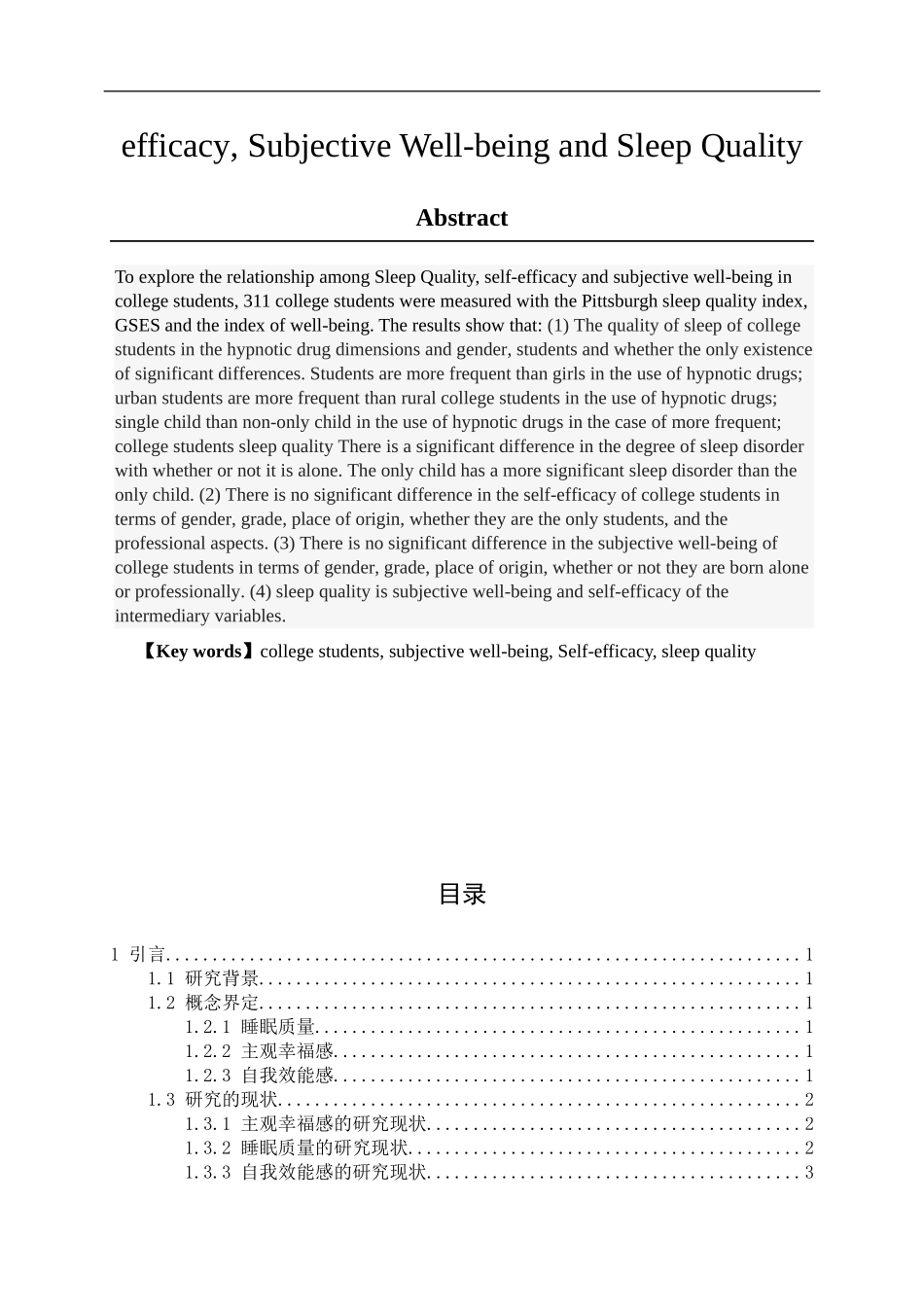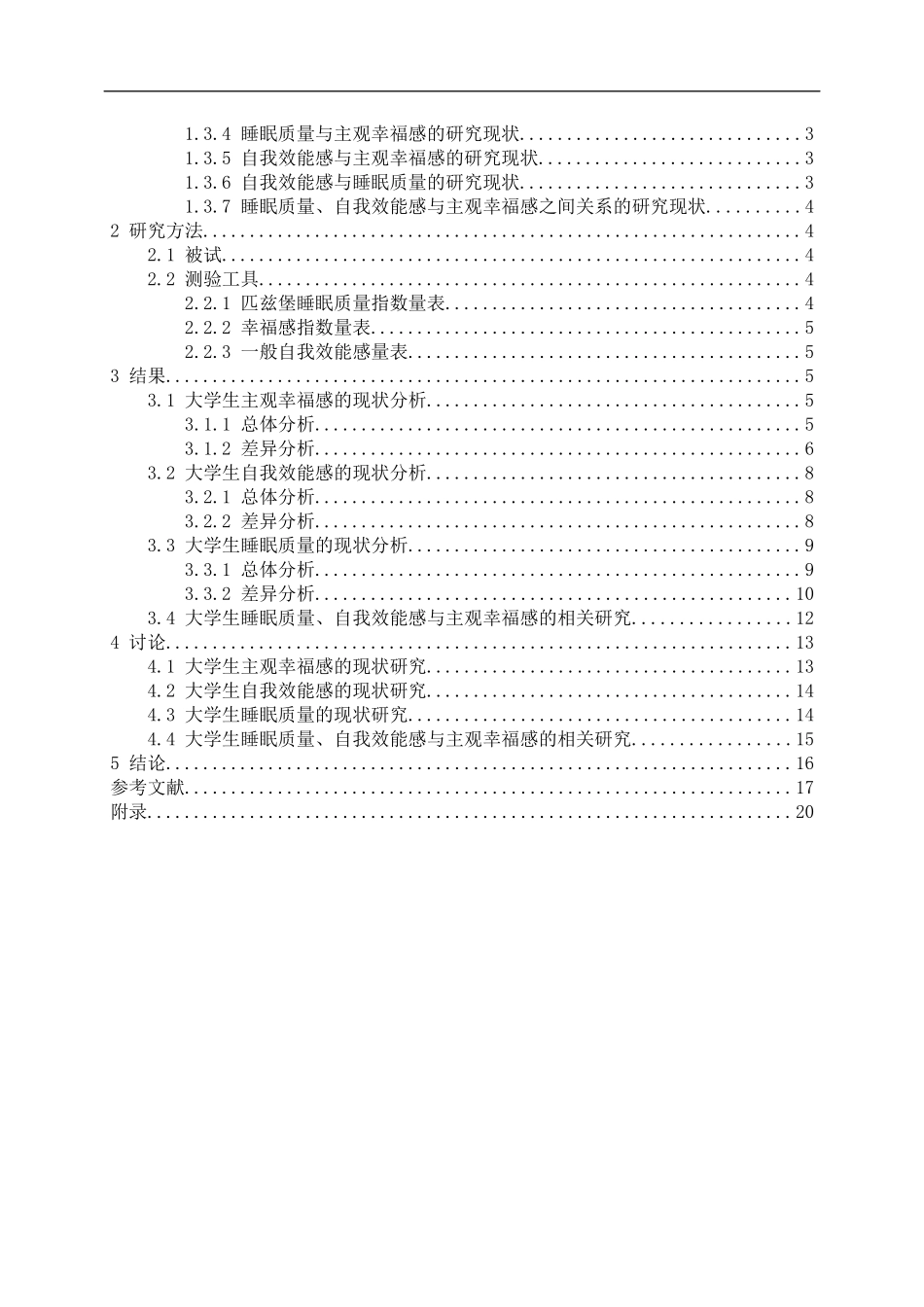大学生睡眠质量、自我效能感与主观幸福感的关系研究摘 要为探讨大学生睡眠质量、自我效能感与主观幸福感间的关系,采用匹兹堡睡眠质量指数量表、一般自我效能感量表与幸福感指数量表,对 311 名大学生进行调查。结果发现:(1)大学生的睡眠质量在催眠药物维度上与性别、生源地与是否独生存在显著差异。分别为男生比女生在使用催眠药物的情况下更加频繁;城市大学生比农村大学生在使用催眠药物的情况下更加频繁;独生子女比非独生子女在使用催眠药物的情况下更加频繁;大学生的睡眠质量在睡眠障碍维度上与是否独生存在显著差异。独生子女比非独生子女存在睡眠障碍的现象更显著。(2)大学生的自我效能感在性别、年级、生源地、是否独生、专业方面均不存在显著差异。(3)大学生的主观幸福感在性别、年级、生源地、是否独生、专业方面均不存在显著差异。(4)睡眠质量是主观幸福感与自我效能感的中介变量。[关键词] 大学生;睡眠质量;自我效能感;主观幸福感The Relationship between College Students' Self-efficacy, Subjective Well-being and Sleep Quality AbstractTo explore the relationship among Sleep Quality, self-efficacy and subjective well-being in college students, 311 college students were measured with the Pittsburgh sleep quality index, GSES and the index of well-being. The results show that: (1) The quality of sleep of college students in the hypnotic drug dimensions and gender, students and whether the only existence of significant differences. Students are more frequent than girls in the use of hypnotic drugs; urban students are more frequent than rural college students in the use of hypnotic drugs; single child than non-only child in the use of hypnotic drugs in the case of more frequent; college students sleep quality There is a significant difference in the degree of sleep disorder with whether or not it is alone. The only child has a more significant sleep disorder than the only child. (2) There is no significant difference in the self-efficacy of college stud...


